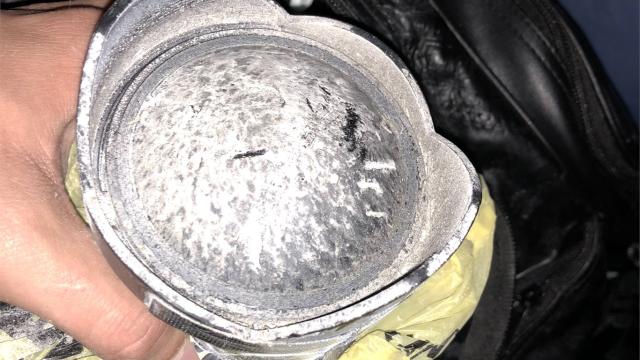It’s amazing what people will do in the name of photography. Take 18-year-old John Kraus: last week, an Atlas V rocket took off from Cape Canaveral and Kraus decided to get a few very close snaps. The good news is he got some beautiful shots. The bad news? It turned one of his lenses into a polar ice cap.
Kraus shared his photos, including the one above with the lens damage, in a post on Reddit. Here’s the wide-angle image he captured using a Nikon D7000 and the above lens.
And here’s one from the same camera around five seconds later. Kraus says it was set up around 300 feet (91.4m) away.
Apparently, that’s not ice on the lens, going from Kraus’ explanation:
Here’s a photo of what the lens looked like right after I picked it up from the launchpad. The residue is a sort of dried, cake-y, powdered material stuck to the lens. I’m guessing that the solid exhaust mixes with the water from the pad’s water suppression system, and that resulting substance adheres to the lens.
Don’t cry over the lost lens. Kraus says it was cheapo 8mm Rokinon he bought for $US100 from a friend. Not a bad price to pay for such an amazing shot.
If you’d like to see more of Kraus’ work, be sure to hit up his personal website.
